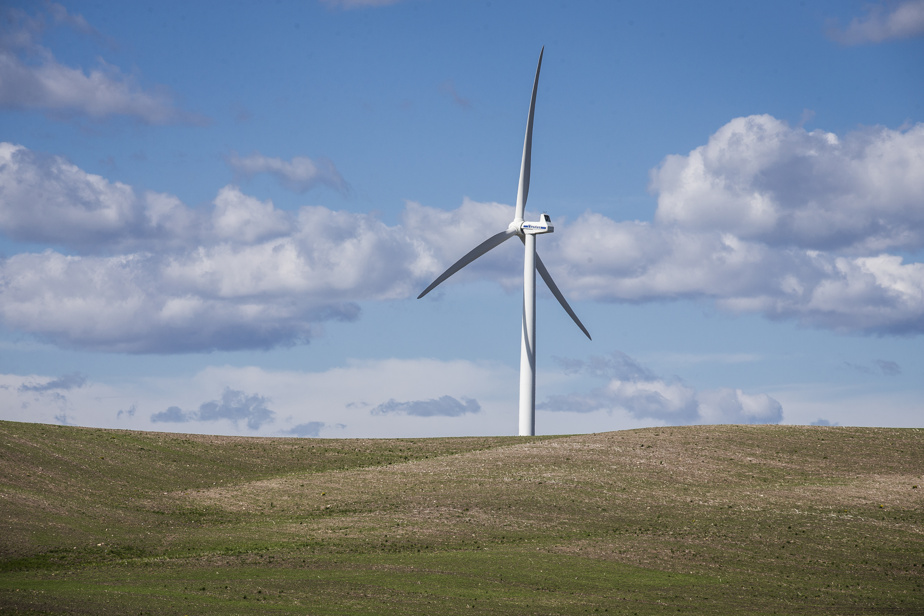(Montreal) Renewable energies, produced by wind turbines in particular, will allow the Inuit to free themselves from fossil fuels, thanks to a partnership between Hydro-Québec and Énergies Tarquti.
Posted at 1:28 pm
Sophie Brochu, president and CEO of Hydro-Québec, called the partnership “historic” during the announcement Monday at the Maison du développement Permanent in Montreal.
Mrs. explained.I Brochu, noting that “more and more communities now want to become full partners in the business decisions, investments, and operations that matter to them.”
The CEO of Hydro-Québec said she was “extremely proud” of the agreement and explained that “this is how we must operate in the future.”
The word “pride” was given by Inuit activist Sheila Wat Cloutier, who attended the event. “This project will create jobs, but also a lot of pride, especially among the youth in the community.”
She noted how the culture and health of northern communities are affected by climate change, and that the partial deregulation of fossil fuels has given her “a lot of hope.”
Wind energy will replace diesel
Many Nunavik communities still primarily use diesel to generate electricity, but this agreement will allow Nunavik Inuit to create their own “renewable energy projects that respect the environment and Nunavimut values,” according to Energiz Tarkuti.
Hydro-Québec currently operates about 20 thermal power plants to supply electricity to remote communities that cannot be connected to the main grid. These plants account for less than 1% of Hydro-Quebec’s production, but are responsible for about 43% of greenhouse gas emissions, according to Crown.
Regarding the new agreement, Sophie Brochu does not have a specific timeline, and she explained that “it is the communities that will really set the pace.” However, Hydro-Québec wants to convert all of its off-grid grids to 80% renewable supply by 2030.
“We will give them our support and expertise throughout the journey,” El-Sayed said.I Published.
Marie Johannes, President of Ilagiisaq, a Tarquti contributor, noted that “there is no doubt that Hydro-Québec’s openness and willingness to listen played a key role in concluding this historic agreement.”
12 of 14 communities
About 13,000 people live in Nunavik, which is divided into 14 communities.
“The agreement reached with Hydro-Québec covers 12 of the 14 Inuit communities in Nunavík,” explained Joé Lance, General Manager of Énergies Tarquti.
“Those that are not included are Inukjuak and Kuujjuarapik-Whapmagootsui. On the other hand, nothing prevents us from developing projects also in these communities,” he said.

“Subtly charming problem solver. Extreme tv enthusiast. Web scholar. Evil beer expert. Music nerd. Food junkie.”


